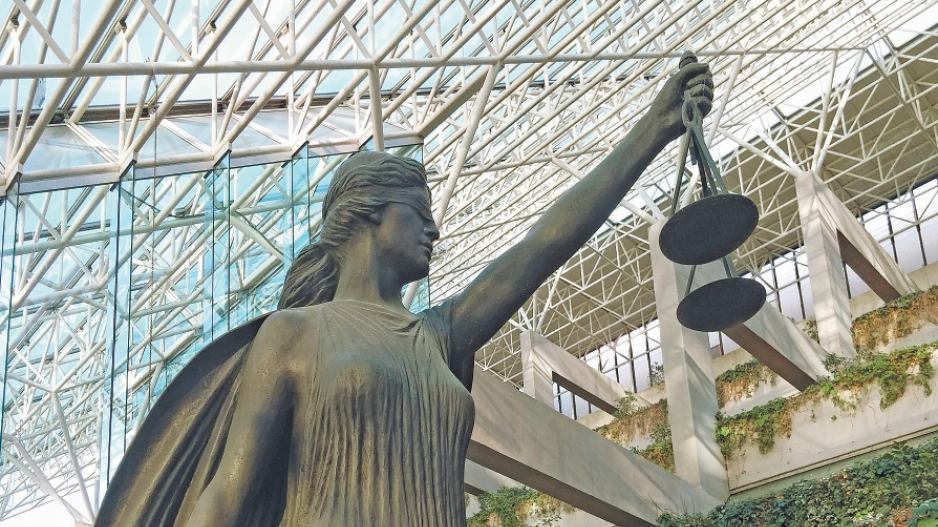Even in a year that has focused primarily on mitigating the COVID-19 pandemic, certain aspects of life in Canada must continue without restrictions. One of them is the judicial branch.
Recent events may have changed the way we look at justice in the country. In April 2020, Nova Scotians had to deal with one of the worst attacks in Canadian history. British Columbia has recently been the scene of a seemingly incessant turf war between gangs. We have also seen a disturbing amount of reports of anti-Asian racism in some municipalities.
Research Co. and Glacier Media asked Canadians about the current state of affairs, and the results are not particularly splendid. Across the country, just under three in 10 Canadians (29%) rate the justice system with a grade of 8, 9 or 10 – including 32% of men and 31% of those aged 18 to 34.
The proportion of Canadians who feel the justice system is excellent or very good is highest in British Columbia (25%), followed by Alberta (34%), Ontario (32%), Quebec (29%) and Saskatchewan and Manitoba (28%). The view is shared by just one out of four residents of Atlantic Canada (24%).
Our personal experience shapes our perception of the justice system as impartial. It is impossible to assume that all parties that have their day in court will be satisfied with the outcome, but some components fare worse than others.
More than two in five Canadians (42%) deem their last interaction with the justice system involving with traffic and bylaw issues, such as disputing a driving ticket or a parking violation, as fair, while 20% consider it unfair.
The numbers are similar for the last interaction related to small claims court, which includes unpaid accounts for goods or services sold. Canadians are more likely to say they were treated fairly (36%) than unfairly (19%).
When it comes to family court – entailing divorce, custody arrangements and spousal support – a third of Canadians (35%) say the system was fair, while 22% consider it unfair. There is a slight gender gap here, with 38% of women saying family court was fair to them, a view shared by 33% of men.
The situation changes dramatically when Canadians are asked to rate the criminal justice system. There is no longer a double-digit lead for the concept of impartiality. While 31% of respondents say their last interaction was fair, 26% consider it unfair – a sizable shift from what is observed on the other three categories.
Two groups are more likely to express dissatisfaction with their personal experience in criminal court: those aged 18 to 34 (32%) and those who voted for the Conservative Party in the 2019 federal election (31%).
Part of the problem with the dissatisfaction voiced on criminal matters is the assessment of an overly lenient judiciary. We learned earlier this year that 50% of Canadians would be willing to bring back the death penalty for cases of murder, including 57% of men and 57% of Canadians aged 55 and over.
Across the country, 61% of Canadians believe that when it comes to criminal cases, the justice system is too soft on offenders – a proportion that rises to 64% among men, 71% among Canadians aged 55 and over and 70% among British Columbians.
Some respondents shared why they have such bad memories of their last interaction with the justice system. “The mediation process was designed to force a solution quickly,” wrote a man from Alberta who felt he was treated unfairly at small claims court. “The company that wronged me got off easy.”
Canadians understand that these experiences are not unique. Almost four in five (78%) think the justice system needs more resources and that it takes too long to get cases dealt with.
Some dismay is saved for the people who are in charge of ensuring fairness. “The judge didn't even understand the case,” shared a man in Atlantic Canada. “The lawyer acting on behalf of the defendant lied in court and the judge overlooked it,” wrote a woman in Saskatchewan.
For a woman in Ontario who was dissatisfied with her experience in family court, the issue was monetary. “If I could have afforded a lawyer, the outcome would have been different,” she told us. This was echoed by the sentiments of a man in Quebec: “Justice is for the rich.” Across the country, seven in 10 respondents (71%) think the outcome of cases depends heavily on how good your lawyer is.
Still, the most poignant account came from a man in British Columbia who offered a summation of his disappointment with being treated unfairly in court: “I’m First Nations.” A majority of Canadians (57%) think the justice system has not done enough to address bias against Indigenous Canadians.
The survey outlines a country that does not have confidence in the ability of the courts to behave in an impartial manner. At this stage, sizable proportions of Canadians perceive the justice system as lenient, elitist, understaffed and prejudiced.
Mario Canseco is president of Research Co.
Results are based on an online study conducted from June 3 to June 5, 2021, among 1,000 Canadian adults. The data has been statistically weighted according to Canadian census figures for age, gender and region. The margin of error, which measures sample variability, is plus or minus 3.1 percentage points, 19 times out of 20.




